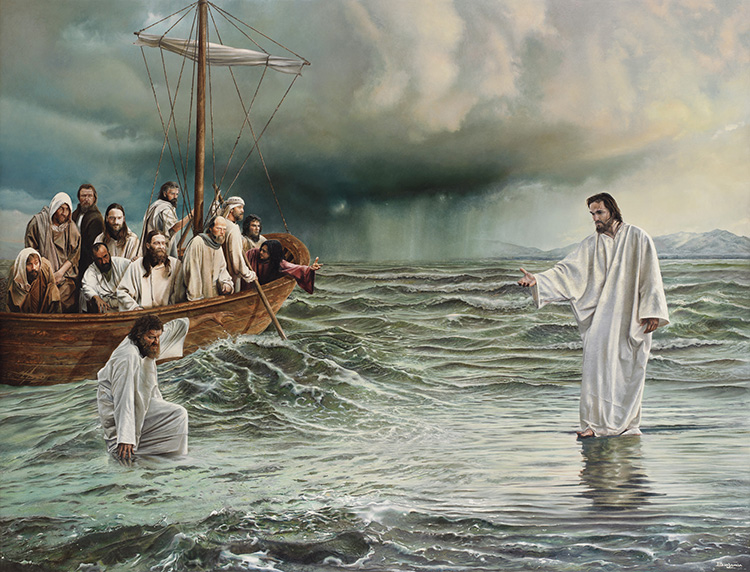They remain over the seventh heaven (or spiritual world), for it is they who, according to the kabalists, formed in succession the six material worlds, or rather, attempts at worlds, that preceded our own, which, they say, is the seventh. If, in laying aside the metaphysico-spiritual conception, we give our attention but to the religio-scientific problem of creation in “six days,” over which our best biblical scholars have vainly pondered so long, we might, perchance, be on the way to the true idea underlying the allegory. The ancients were philosophers, consistent in all things. Hence, they taught that each of these departed worlds, having performed its physical evolution, and reached — through birth, growth, maturity, old age, and death — the end of its cycle, had returned to its primitive subjective form of a spiritual earth. Thereafter it had to serve through all eternity as the dwelling of those who had lived on it as men, and even animals, but were now spirits. This idea, were it even as incapable of exact demonstration as that of our theologians relating to Paradise, is, at least, a trifle more philosophical.
As well as man, and every other living thing upon it, our planet has had its spiritual and physical evolution. From an impalpable ideal thought under the creative Will of Him of whom we know nothing, and but dimly conceive in imagination, this globe became fluidic and semi-spiritual, then condensed itself more and more, until its physical development — matter, the tempting demon — compelled it to try its own creative faculty. Matter defied SPIRIT, and the earth, too, had its “Fall.”
The allegorical curse under which it labors, is that it only procreates, it does not create. Our physical planet is but the handmaiden, or rather the maid-of-all-work, of the spirit, its master. “Cursed be the ground . . . thorns and thistles shall it bring,” the Elohim are made to say. “In sorrow thou shalt bring forth children.” The Elohim say this both to the ground and the woman. And this curse will last until the minutest particle of matter on earth shall have outlived its days, until every grain of dust has, by gradual transformation through evolution, become a constituent part of a “living soul,” and, until the latter shall reascend the cyclic arc, and finally stand — its own Metatron, or Redeeming Spirit — at the foot of the upper step of the spiritual worlds, as at the first hour of its emanation. Beyond that lies the great “Deep” — A MYSTERY!
It must be remembered that every cosmogony has a trinity of workers at its head — Father, spirit; Mother, nature, or matter; and the mani-
Page 421
fested universe, the Son or result of the two. The universe, also, as well as each planet which it comprehends, passes through four ages, like man himself. All have their infancy, youth, maturity, and old age, and these four added to the other three make the sacred seven again.
The introductory chapters of Genesis were never meant to present even a remote allegory of the creation of our earth. They embrace (chapter i.) a metaphysical conception of some indefinite period in the eternity, when successive attempts were being made by the law of evolution at the formation of universes. This idea is plainly stated in the Sohar: “There were old worlds, which perished as soon as they came into existence, were formless, and were called sparks. Thus, the smith, when hammering the iron, lets the sparks fly in all directions. The sparks are the primordial worlds which could not continue, because the Sacred Aged (Sephira) had not as yet assumed its form (of androgyne or opposite sexes) of king and queen (Sephira and Kadmon) and the Master was not yet at his work.”
The six periods or “days” of Genesis refer to the same metaphysical belief. Five such ineffectual attempts were made by the Elohim, but the sixth resulted in worlds like our own (i.e., all the planets and most of the stars are worlds, and inhabited, though not like our earth). Having formed this world at last in the sixth period, the Elohim rested in the seventh. Thus the “Holy One,” when he created the present world, said: “This pleases me; the previous ones did not please me.” And the Elohim “saw everything that he had made, and behold it was very good. And the evening and the morning were the sixth day.” — Genesis i.

Moe is the founder of GnosticWarrior.com. He is a father, husband, author, martial arts black belt, and an expert in Gnosticism, the occult, and esotericism.


![How the South Saxons received Eadbert and Eolla, and the West Saxons, Daniel and Aldhelm, for their bishops; and of the writings of the same Aldhelm [705 A.D.] | Book 5 | Chapter 17 How the South Saxons received Eadbert and Eolla, and the West Saxons, Daniel and Aldhelm, for their bishops; and of the writings of the same Aldhelm [705 A.D.] | Book 5 | Chapter 17](https://www.gnosticwarrior.com/wp-content/plugins/contextual-related-posts/default.png)


It really is disturbing that you invest all this time in ancient mysteries and “cracking the code” but you can not see what is right in front of you. The “Gnostics” have been in control of this planet for a very long time. What great freedoms have free masonry won you? What paradise has your “hidden hand” crafted? It is written that a good tree can not bear evil fruit nor a corrupt tree bear good fruit. What is the fruit of this world? War, hunger, poverty and genocide-these are the fruits of the “enlightened.” Your words are sweet but they turn bitter when consumed.